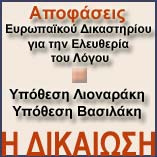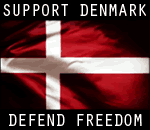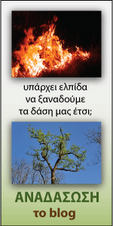human trafficking is not human smuggling. human trafficking is modern-day slavery through labor or commercial sexual exploitation, and does not require transportation to occur, though transportation may be involved.
human trafficking is the third most lucrative criminal activity and the fastest growing after drugs and arms trafficking. it is estimated that the annual revenue from all trafficking activities is 9.5 billion dollars, with at least $4 billion coming from the worldwide brothel industry.
each year, an estimated 600.000 - 800.000 men, women and children are trafficked across international borders and the trade is growing.
of the 600.000 - 800.000 people trafficked annually across int'l borders, 70% are female and 50% are children. the majority of these victims are forced into the commercial sex trade.
sex trafficking is one of the most profitable sectors of the trade in people and involves exploitation in prostitution or pornography, bride trafficking and commercial sexual abuse of children.
the major myth that prevails is that poverty and inequality are the causes of human trafficking. this is wrong! while poverty and inequality are important factors they are NOT the primary cause of trafficking. trafficking is a criminal industry driven by the ability to make large profits due to high demand and negligible-to-low risk of prosecution. as long as the demand exists and the risks for traffickers are low, trafficking will exist regardless of other contributing factors. by focusing on poverty and inequality as the key factors of human sex trafficking, we deflect the blame from the key actors that perpetuate this activity: the traffickers and their clientele.
trafficking takes away the most fundamental human right - freedom - from its victims, mostly women and children. trafficking in persons is a heinous crime and a flagrant abuse of fundamental human rights and human dignity.
based on the "trafficking in persons" 2005 report (u.s. dept. of state) greece is a tier 2 watch list country along with countries like ukraine, benin, sierra leone, india, niger, gambia, azerbaijan, mexico, the slovak republic and uzbekistan. tier 2 watch list means: countries whose governments do not fully comply with the act’s minimum standards but are making significant efforts to bring themselves into compliance with those standards, and:
1. the absolute number of victims of severe forms of trafficking is very significant or is significantly increasing; or
2. there is a failure to provide evidence of increasing efforts to combat severe forms of trafficking in persons from the previous year; or
3. the determination that a country is making significant efforts to bring themselves into compliance with minimum standards was based on commitments by the country to take additional future steps over the next year.
here is the report on greece
Παρασκευή, Οκτωβρίου 21, 2005
modern-day slavery
Αναρτήθηκε από pinky and the brain στις 10/21/2005 08:49:00 μ.μ.
Εγγραφή σε:
Σχόλια ανάρτησης (Atom)
Blog Archive
-
►
2016
(1)
- ► Φεβρουαρίου (1)
-
►
2012
(1)
- ► Ιανουαρίου (1)
-
►
2011
(21)
- ► Φεβρουαρίου (4)
- ► Ιανουαρίου (4)
-
►
2010
(59)
- ► Δεκεμβρίου (3)
- ► Σεπτεμβρίου (6)
- ► Φεβρουαρίου (5)
- ► Ιανουαρίου (3)
-
►
2009
(79)
- ► Δεκεμβρίου (6)
- ► Σεπτεμβρίου (8)
- ► Φεβρουαρίου (10)
- ► Ιανουαρίου (11)
-
►
2008
(189)
- ► Δεκεμβρίου (24)
- ► Σεπτεμβρίου (17)
- ► Φεβρουαρίου (22)
- ► Ιανουαρίου (15)
-
►
2007
(375)
- ► Δεκεμβρίου (14)
- ► Σεπτεμβρίου (19)
- ► Φεβρουαρίου (46)
- ► Ιανουαρίου (46)
-
►
2006
(499)
- ► Δεκεμβρίου (45)
- ► Σεπτεμβρίου (45)
- ► Φεβρουαρίου (46)
- ► Ιανουαρίου (41)
-
▼
2005
(425)
- ► Δεκεμβρίου (37)
-
▼
Οκτωβρίου
(29)
- Φιλελεύθερη Σοσιαλδημοκρατία
- Freakonomics ή γιατι οι οικονομολογοι νομιζουν οτι...
- Πώς τολμάς να διαφωνείς;
- Διάβασέ Με!
- Ο Μηχανισμός του Αόρατου Χεριού
- Shame to you hypocrits
- Μπορει μια θρησκεια να ειναι ανοιχτη και φιλελευθερη?
- Εκκλησία-Πολιτεία, επιτέλους ρόλοι καθαροί.
- ΜΚΟ και πολιτική. Τρία ηχηρά μηνύματα
- Γυναίκες και Επιχειρήσεις
- Ανάγκες, Επιθυμίες, Ζήτηση
- modern-day slavery
- Η Φιλελεύθερη Δημοκρατία και η αρετή της Ανεκτικότ...
- Η Διαφήμιση σας Πείραξε!
- Χτυπα ο H5N1 τους κοκκορες?
- Rory Gallagher: the legend lives on...
- Η Ν.Δ. το ΠΑ.ΣΟ.Κ. και το Κ.Κ.Ε.
- Αθηνα, Ελλαδα, Μεση Ανατολη
- Ελλαδα, πολιτισμικη υπερδυναμη
- Το δικαίωμα στην τεμπελιά.
- Ένας πρωτοπόρος. Ο πρόεδρος της Ακαδημίας Αθηνών!
- Το μετρό παει στο Αιγαλεω-Χαϊδαρι
- Νέα μάσκα του δημιουργισμού
- Νοήμων Σχεδιασμός vs Φυσική Επιλογή (ή κατά άλλους...
- Κλεινει λεει ο Flash...
- Περι γρηγοροσημου και διαφθορας
- Μία απορία...
- The luxury of today is the necessity of tomorrow.
- Rooster Review 7-9/2005
- ► Σεπτεμβρίου (41)
- ► Φεβρουαρίου (20)
- ► Ιανουαρίου (18)
Contributors
- Alkis Ioannidis
- Anarchocapitalist
- Andrew
- Chrysotheras
- Fuchsia
- Harry Peitsinis
- Joe
- John 25aris
- Kokkoras
- Leviathan
- Manoliscus
- NTG
- Nievskii
- Roark
- S G
- Sakis Rizos
- Thrass
- Αθ. Αναγνωστoπουλος
- Αθήναιος
- Γ.Σαρηγιαννίδης
- Σκεπτικιστης
- Στέφανος Αθανασιάδης
- Τηλέμαχος Χορμοβίτης
- avatar
- cobden
- kouk
- libertarian
- mantz
- pinky and the brain
- space-navigating
- subterranean
- zanat0s
-
Ελληνικοι Συνδεσμοι
- Φιλελεύθερη Συμμαχία
- Greek Liberals - Φιλελεύθερη Συμμαχία
- Liberal Alliance - Φιλελεύθερη Συμμαχία
- Κέντρο Φιλελεύθερων Μελετών
- Οικολόγοι-Πράσινοι
- Δημοκρατικοί
- Οι Φιλελεύθεροι
- Κόμμα Ελευθερίας & Δικαιοσύνης Ελλάδας
- Δράση
- Forum για την Ελλάδα
- Πορτοκαλί 2010
- Presscode
- Εταιρία Κοινωνικών και Οικονομικών Μελετών
- Προοδευτική πολιτική
- Επίκεντρα
- Αγορά Ιδεών
- Διαρκής Μεταρρύθμιση
- Anatheorisi.org
- Greek University Reform Forum
- Κίνηση "Παιδεία για Δημοκρατία και Ανάπτυξη"
- Αξιολόγηση Βουλευτών
- wiki για το Ασφαλιστικό (Reality Tape)
- Η Τυρρανία των Καλών Προθέσεων
- G700
- Atheoi.org
- Libertarians in Greece
- We support Freedom of Speech and Anonymity for Greek Blogs
- Πάρκα Παντού!
- Όχι νέοι φόροι!
- Πρωτοβουλία για την Πρόσβαση στα Δημόσια Δεδομένα
- Ανδρέας Ανδριανόπουλος
- Andreas Andrianopoulos Appreciation Society
- Στέφανος Μάνος
- Πέτρος Τατούλης
- Πάσχος Μανδραβέλης
- Νίκος Δήμου
- Κυριάκος Μητσοτάκης
- Μανώλης Βασιλάκης
- Μίμης Ανδρουλάκης
- Γιάννης Λάριος
- Tάκης Μίχας
- Άρης Χατζής
- Χαρίδημος Τσούκας
- Κωστής Χατζηδάκης
- Ντόρα Μπακογιάννη
- Κώστας Κουκόπουλος
- Φώτης Περλικός
- Fearsociety
- Ο Νεοφιλελεύθερος
- Libertatia
- Υπάρχουμε... Συνυπάρχουμε;
- Παρατηρήσεις...
- Business Writer
- No Guts, No Glory
- The Pinky And The Brain
- So What!
- Greek Forum
- Versutia
- It's the economy
- Athens FreePaper
- Libertinos
- Αναιδώς
- North Michigan Avenue
- Tory Anarchist
- StepDance.gr
- Oikonomika Blog
- Anarchism
- Συνιστολόγιο
- The Night Of The Stormrider
- Σουφραζέτα
- λ:ηρ
- Που πας ρε Καραμήτρο!
- Exastal
- Πολιτεύομαι!
- Έτσι το βλέπω
- Φιλελεύθερη Λαλιά
- Deecitizenstalks
- Αθήναιου Βορβορυγμοί
- Λογικό
- Love in Snow
- Greek Netizen
- e-Πλάτανος
- Canis Libertatis
- Φιλελεύθερο Ζάντε
- Liberal Daltons
- Αυτοεξόριστος
- Stelpas
- Laissez Faire
- Απαλλαγή από το μάθημα θρησκευτικών
- Πράσινος Φιλελευθερισμός
- Φιλελεύθερο Ιόνιο
- Κίνηση Οικονομικής Ανάπτυξης
- Κίνηση Κοινωνικής Συνοχής
- Κίνηση Μεγάλης Βρετανίας
- Φιλελεύθερη Αθήνα
- Φιλελεύθερη Θεσσαλονίκη
- Φιλελεύθερη Αττική
- Φιλελεύθερη Κεντρική Μακεδονία
- Φιλελεύθερη Ανατολική Μακεδονία και Θράκη
- Φιλελεύθερη Δυτική Μακεδονία
- Left Liberal Synthesis
- Μέτικου Λεξικό
- Είναι καιρός...
- Πράσινοι Φιλελεύθεροι
- Tall Athens
- Ελληνικό Καθεστώς
- Σελίδες φιλελεύθερης σκέψης
- Αντικειμενιστής
- e-left
- Κρυμμένες Αλήθειες
- Καγκελάριος
- Liberal Greek
- Fresh24
- Liberal Socialism
- μία δε κλίνη κενή φέρεται εστρωμένη των αφανών
- Λιανοκλάδι
- Koblopoulos
- Keynesfriedman
- Real Politics
- Liberalism.gr
- Οι Εγκάθετοι
- Politicking Baby
- Aλήθειες για το φιλελευθερισμό
- Το Σύνταγμα της Ελευθερίας
- Κοντά στον ουρανό
-
Διεθνεις Συνδεσμοι
- Φιλελεύθερο Forum
- Heritage Foundation
- Ίδρυμα John Locke
- Ινστιτούτο Ludwig von Mises
- Ινστιτούτο Cato
- free-market.net
- Το Κέντρο Αντικειμενισμού
- The Independent Institute
- Το Ινστιτούτο Ayn Rand
- National Center for Policy Analysis
- The Science & Environmental Policy Project
- The National Center for Public Policy Research
- Το Ίδρυμα Οικονομικής Έρευνας Atlas
- The Ronald Coase Institute
- The Free Africa Foundation
- The Online Library of Liberty
- Foundation for Research on Economics & the Environment
- GreenLiberty.org
- Center For Global Food Issues
- Property and Environment Research Center
- National Wilderness Institute
- Capitalism Magazine
- Reason online
- The CATO Journal
- Regulation
- The Hoover Digest
- The Intellectual Activist
- Victor Davis Hanson
- David Friedman
- Tom Palmer
- Asymmetrical Information
- Cafe Hayek
- Virginia Postrel
- Global Growth Blog
- The Liberal Order
- Protein Wisdom
- Atlas Shrugs
- The Rule of Reason
- The Becker-Posner Blog
- Positive Externality
- Liberty for Cuba
- Rational View
- Instapundit
- Little Green Fooballs
- Cox & Forkum
- Chicago Boyz
- Rebellion Coffee
- Libertarian Leanings
- Positive Liberty
- The Liberty Papers
- Το Ινστιτούτο Fraser
- A Canadian Econoview
- Spirit of Man
- Winds of Change
- Filibuster Cartoons
- Blue Balloon
- Center for Research and Development
- Instituto Ecuatoriano de Economia Politica
- Fundation Libertad
- CEDICE Libertad
- El Liberal Venezolano
- Laissez-Faire
- Y todo lo demas
- Valete Fratres!
- Instituto Liberal
- Liberal-punto-ar
- Libertimus
- BlogBis
- Sine Metu Reloaded
- En defensa del neoliberalismo
- Το Ινστιτούτο Ελευθερίας και Δημοκρατίας
- Institutional Economics
- The Center for Independent Studies
- The Rathouse
- Το Ινστιτούτο Οικονομικών Υποθέσεων
- Ινστιτούτο Adam Smith
- Stockholm Network
- Transparency International
- The Globalization Institute
- Social Market Foundation
- The David Hume Institute
- Libertarian Alliance
- Society for Individual Freedom
- Liberal International
- iGreens.org.uk
- The Economist
- New Economist
- An Englishman's Castle
- Christopher Hitchens
- Nanny Knows Best
- Freedom and Whisky
- Lib on the United Kingdom
- The road to Euro Serfdom
- Open Republic Institute
- The Freedom Institute
- Irish Eagle
- Atlantic Blog
- Liberala Partiet
- Folkpartiet Liberalerna
- Moderaterna
- Timbro
- Forum for Fair and Free Trade
- Stockholm International Peace Research Institute
- Bertil Ohlin Institute
- Eudoxa
- Ratio Institutet
- Captus
- Nyliberalen
- The Freedom Front
- Marknadkraften
- Liberalismen
- Heureka
- Johan Norberg
- EGO
- Stefan Karlsson
- Johnny Munkhammar
- Moderskeppet
- Simelas
- FRIdemokratene
- Civita
- Bergen Objektivist Forening
- Centre for Social and Economic Research
- Anders Chydenius Foundation
- Copenhagen Consensus
- Libertas
- Copenhagen Institute
- Center for Politiske Studier
- Bjorn Lomborg
- Econotrix
- Punditokratene
- A Fistful of Euro
- European Freestate Project
- Causa Liberal
- A Mao Invisivel
- Por la libertad
- El rincon de la libertad
- Hispalibertas
- The Molinari Institute
- Les circles liberaux
- Alternative Liberale
- Generation Libre
- Liberte Cherie
- La Page Liberale
- Institut Hayek
- Alain Genestine
- Το Κέντρο για τη Νέα Ευρώπη
- Libertarian International
- LYMEC
- Liberal Archive
- Teldersstichting
- Ayaan Hirsi Ali
- Vrijbrief
- Libertarian.nl
- Freie Demokratische Partei
- Levantinismos
- Friedrich-Naumann-Stiftung
- Stiftung Marktwirtschaft
- Transatlantic Forum
- Statler & Waldorf
- Objektivismus
- Liberales Institut
- Pro Libertate
- Hayek Institut
- Liberty Ideas
- Liberální Institut
- Foundation for Market Economy
- Hayek Tarsasag
- F.A. Hayek Foundation
- Centre for Political Thought
- Libertarianizm
- Lithuanian Free Market Institut
- Estonian Reform Party - Liberals
- Institute of Economic Analysis
- Cato.ru
- AynRand.ru
- The Adam Smith Society
- Το Ινστιτούτο Bruno Leoni
- Centro Einaudi
- Free Thoughts
- Adriatic Institute for Public Policy
- Liberals of Serbia
- Center for Liberal-Democratic Studies
- Free Market Center
- Albanian Center for International Trade
- Albanian Liberal Institute
- Liberal Party of Macedonia
- Liberal Democratic Party
- Ohrid Institute for Economic Strategies
- Association for Modern Economy
- Movement for Rights and Freedoms
- Institute for Market Economics
- Centre for Social Practices
- Centre for Liberal Strategies
- Association For Liberal Thinking
- Objektivist Hareket
- Free Iran News
- Alternate Solutions Institute
- AnarCapLib
- Centre for Civil Society
- Center for Free Enterprise
Referrers
Based on original Visionary template by Justin Tadlock
Visionary Reloaded theme by Blogger Templates | Distributed By Magazine Template

























4 σχόλια:
Ερώτηση άσχετου με το θέμα:
Γιατί το trafficking ενηλίκων δεν είναι νόμιμο? Eννοώ, έχουμε* λόγους να μην το θέλουμε νόμιμο?
*εμείς: εγώ κι εσύ που απαντάς. Δε μιλώ για τους εμπόρους.
thrass, δεν είναι νόμιμο γιατί είναι εκμετάλλευση. παραμένει slavery γιατί ότι γίνεται γίνεται παρά τη θέλησή σου. ούτε οι ενήλικες (πόσο μαλλον τα παιδιά) δεν ξέρουν ότι θα καταλήξουν έτσι. νομίζουν ότι πχ θα δουλέψουν σε εστιατόριο και καταλήγουν κλειδωνένες σε δωμάτια υποχρεωμένες να δεχτούν τον κάθε πελάτη
Μάλιστα. Θα ήταν πάντως ενδιαφέρον να ξέραμε πόσοι από το 50% που είναι ενήλικες μπήκαν με τη θέλησή τους σε τέτοια κυκλώματα (πχ για να φύγουν από τη φτωχή χώρα τους ή ως επιλογή εργασίας).
Φαντάζομαι ότι υπάρχουν και τέτοιοι, που διαπραγματεύτηκαν και πούλησαν βασικά δικαιώματά τους.
από αυτά τα νούμερα, κανείς δεν μπήκε με τη θέλησή του. και αν μπήκε με τη θέλησή του έχει εξαπατηθεί πιστεύοντας ότι θα κάνει κάτι άλλο από αυτό που τελικά αναγκάστηκε να κάνει.
Δημοσίευση σχολίου